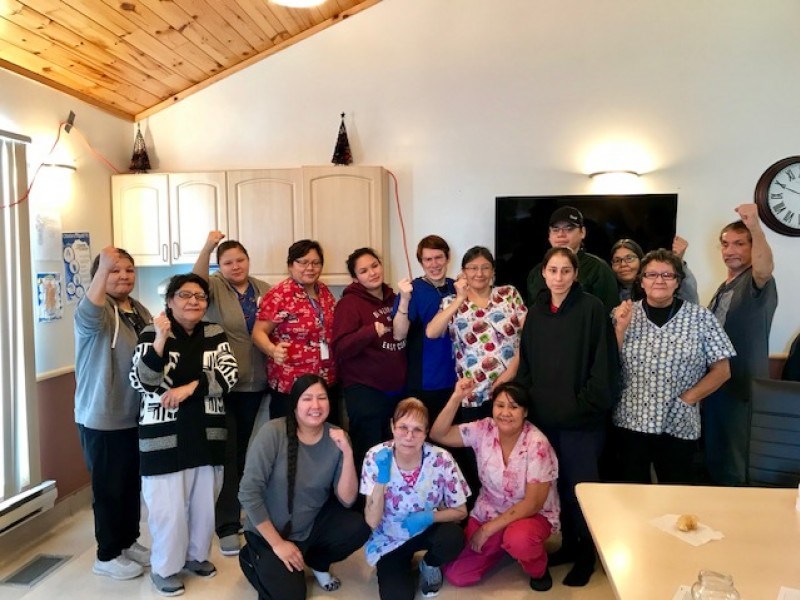Support service workers at the Nisichawayasihk Cree Nation (NCN) personal care home voted overwhelmingly in favour of strike action Jan. 24.
The Manitoba Government and General Employees Union (MGEU) Local 367 members’ previous contract expired March 31 of last year. In November 2016, the workers went on strike in an effort to achieve wage parity with workers doing the same job at personal care homes operated solely by the province. That two-year contract included a 10 per cent raise in the first year retroactive to the expiry of the previous contact in March 2015. The second year of the agreement saw them receive a three per cent raise. The strike did not achieve the workers’ goal of pay equity with other personal care home workers in Manitoba but did significantly close the gap, said MGEU president Michelle Gawronsky at the time.
“Our Local 367 members currently make 14 per cent less than workers at other care homes, even though they have the same training and job descriptions,” said Gawronsky in a Jan. 24 press release. “It’s unfair and it’s gone on for far too long.”
About two dozen employees of the care home are MGEU members.
The NCN personal care home gets about two-thirds of its funding from the federal government and the other third from the province.
“In 2018-2019, Indigenous Services Canada provided the Nisichiwayasihk Cree Nation with $1.8 million through the Assisted Living program for the institutional care, operation and maintenance of the Nisichiwayasihk Personal Care Home,” said Indigenous Services Canada spokesperson Rola Tfaili. “The personal care home funding factors in regional health authority rates, geographic location, staff salaries, and other operational costs of an off-reserve facility.”
“The reality is that all First Nations PCHs are underfunded, even though we provide the same care and services as other rural care homes that are 100 per cent funded by the province,” says Regitha Rajesh, chief executive officer of the NCN personal care home, in a news release. “If we received the same funding, we wouldn’t have wage disparity. Our employees are feeling disrespected and frustrated. They need to strike every time just to be treated equally. It’s not fair to them and it’s not fair to our elders.”
NCN Chief Marcel Moody said that the wage difference meant that NCN elders were not being cared for the same as other personal care home residents.
“In 2016, the Canadian Human Rights Tribunal ruled, under Jordan’s Principle, that Canada cannot discriminate against Indigenous children on the basis of jurisdiction or geography,” Moody said. “Now, another vulnerable group of people, our elders, are being denied equitable care.”
About three-quarters of the workers at the NCN personal care home are MGEU members.
NCN says the personal care home needs about $390,000 in additional funding to achieve wage parity for its workers.
“Our members are deeply committed to the elders in their care,” said Gawronsky. “It should never come to this. But our members also know their community is behind them in their fight for fairness.”




